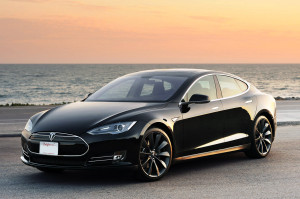By Micheline Maynard
Consumers and investors are fascinated by Tesla Motors. The Tesla Model S electric car has won rave reviews from publications such as Consumer Reports, while shareholders are making a killing on Tesla stock.
So, why would any state want to block Tesla from doing business?
Yesterday, New Jersey officials affirmed the state’s law that allows only franchised auto dealers to sell vehicles. That essentially blocks Tesla, which sells its vehicles directly to consumers. The carmaker is expected to close its operations in New Jersey by April 1.
New Jersey joins Texas and Arizona in specifically blocking companies that sell directly, and since there’s only one out that, that means Tesla isn’t welcome in those three places. Other states have rebuffed Tesla’s efforts to open showrooms and service cars.
The reason is that car dealers are one of the strongest lobbies in the country, and they’re determined to protect their turf. Various dealer groups have spent years winning approval for, and strengthening franchise laws across the country. Their aim is simple: cars should be sold only by car dealers. You can’t blame them, of course. Many dealers invest $1 million or more just to build a showroom, let alone the millions in costs for employees and facilities.
Likewise, dealership networks give these businessmen and women clout in dealing with the major car companies. Over the years, a number of car makers have tried getting around franchise laws with company-owned dealerships, only to give up on the concept time and again.
But Tesla has been trying to do things differently. Its CEO, Elon Musk, doesn’t want to be burdened with the headaches that go with selling products through middlemen. He wants a direct link to the customer.
That’s a modern approach that flies in the face of the traditions that dealers have established. Many dealers argue that franchise laws actually protect consumers. If a problem takes place with a car, the dealership is the one that will be fixing it, not the executives back at headquarters.
Moreover, the data that dealers collect is valuable to the companies, and they’re getting it delivered in uniform ways, not from customers who may not know how to describe their problems.
But the decision by New Jersey and the other states somehow seems anti-capitalistic. Here’s an inventor who has developed what may be the best car in the country, at least in the eyes of a respected magazine. And you don’t want him to sell vehicles in your state?
Tesla is bound to face more such battles around the country as it tries to expand. It may have to give in and open its own dealerships, just to have a foothold in important places. On the other hand, as we’ve seen with mobile apps like Uber and companies like Zipcar, Americans are showing they’re okay with dealing with newcomers.
This could wind up being an interesting showdown between the old way of selling cars and the new way of getting around.

